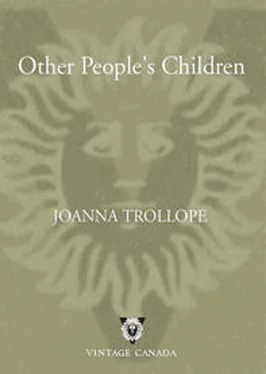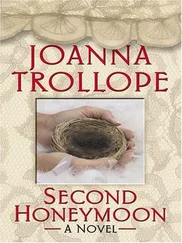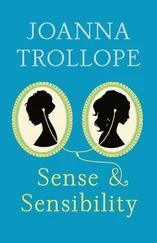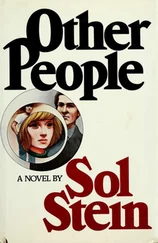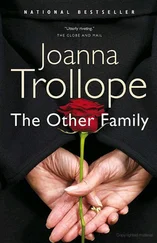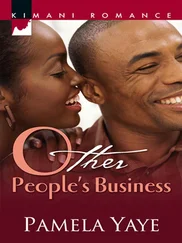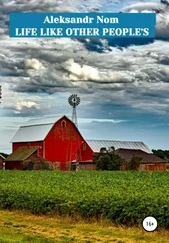‘No good pretending,’ she’d said to Matthew. ‘But no. You’re not.’
She looked round the restaurant now. It was Italian, with rough white walls and rush-seated chairs and a menu that featured, among other things, fifteen kinds of speciality pizza. That’s why it had been chosen. For the children. Pizza for the children.
‘Are you strong enough for this?’ Elaine had said to Josie. ‘Are you sure? Can you really take these children on? It’s harder than climbing Everest.’
‘Mum,’ Josie said, ‘I’ve been there and done it. I’ve been a stepmother.’
‘But that was different. These children are younger and – well, not very amenable—’
‘We’ll do it together,’ Josie said. She’d been brushing her hair, that astonishing coppery river that gave her a glamour disproportionate to the rest of her. ‘I love him. He loves me. We’ll cope with the kids together.’
Now, beside Elaine, Clare, Matthew’s youngest child, said, ‘What’s this?’
‘What, dear?’
‘This,’ Clare said. She jabbed her fork at her pizza.
‘It’s an olive,’ Elaine said.
Clare dropped her fork.
‘Yuk. I’m not eating it. Looks like a beetle.’
‘Leave the olive, then,’ Elaine said. ‘And eat the rest.’
‘I can’t,’ Clare said, ‘I can’t. Not if the olive’s been there.’
Across the table, Rufus and Rory ate ravenously side by side. Rory was tearing at his pizza with his fingers, Rufus was just eating, steadily, mechanically, looking at nothing but his plate. On Elaine’s own plate lay a little mound of pasta shaped like bows in a sauce of salmon and dill. She didn’t feel like eating it. She had never felt less like eating anything. She turned to Matthew’s daughter, Becky, on her other side. She had a nose stud shaped like a tiny crescent moon and alternate fingernails on both hands were painted black. The pizza in front of her was completely untouched.
‘Aren’t you eating?’ Elaine said. She had meant to say ‘dear,’ but the word had not somehow emerged.
‘No,’ Becky said. Her right hand strayed to the left breast pocket of her denim jacket.
‘Aren’t you hungry?’
Becky turned briefly to look at her. Her eyes were a startling, pure, pale delphinium blue.
‘I’m dieting,’ she said.
Karen, Matthew’s sister, tried to avoid her father’s eye. He was overdoing it, drinking too much, shouting false jolly things across the table to try and cover up the fact that Matthew’s mother should have been there, and was not because she had refused to come to the wedding. She’d not only refused to come but had made a continued and noisy fuss about refusing, culminating in shutting herself in her bedroom on the wedding morning.
‘I’m not getting her out,’ Karen’s father said. ‘I’m not even trying. There’s disapproval coming from under that door like black smoke and she can just choke on it.’
Karen had a headache. She’d just finished eight days of night duty on the geriatric ward and a large part of her was so tired she didn’t really care who married whom. She thought wearily of all the seventeen years that Matthew had been married to Nadine, and the steady stream of abuse of Nadine that her mother had kept up, of Nadine’s appearance and lack of housekeeping skills and wrong-headed (in her view) political commitment and endless student zeal to embrace new skills, new languages, new causes.
‘When will she stop playing about and damn well earn some money?’
But when Matthew had fallen in love with Josie, Karen’s mother’s tune had changed overnight. Nadine became ‘Matthew’s wife’, ‘the mother of my grandchildren’, ‘my daughter-in-law’, as if she’d suddenly sprouted a halo. Nadine, to her credit, took no more notice of the change of opinion than she had of the original one, but Matthew was up in arms. He’d had blazing, bellowing, roaring rows with his mother, pursuing her round the house bawling and yelling and telling her, over and over again, that her real trouble was that she was jealous – plain, bald, ugly old jealous, because he had had the guts to leave a bad marriage for a prospect of happiness, and that she’d never had the nerve to do the same, but preferred to grind on as she was, taking her disappointment out on everyone around her in revenge. Which was true. Karen sighed and picked up her champagne glass which she had managed to make so smeary it had lost all its brief look of festivity. Of course it was true. What else, she sometimes wondered, but the spectacle of her parents’ palpable unsuitability to spend a weekend together, let alone a lifetime, had ensured that she was still unmarried at thirty-six and had never even lived with anyone for more than a month? She took a swallow of champagne. It was flat and warm and tasted sour. Beside her, Josie’s little boy, Rufus, had put down his knife and fork and was sitting back in his chair, far back, as if he felt he didn’t belong.
‘You OK?’ Karen said.
He was a sweet-looking kid. He said, ‘I got tomato on my tie.’
‘Shouldn’t worry. Look at my dad. I should think he’s got half his lunch down his. D’you want some icecream?’
Rufus shook his head. He looked, Karen thought, like those kittens and puppies you saw in pet-shop windows, all begging you to take them home with you. He looked so lost. He probably felt it. Karen had seen plenty of kids in his position in the hospital, trailing down wards to see parents who weren’t their parents, who never would be or could be, except in the mere name society gave them, for its own convenience. A lot of those kids looked stunned, as Rufus did, as if the process of mourning for the loss of a previous family – not even, in many cases, the tidy acceptable birth family – had been so painful at first, terrified glance, that they simply hadn’t done it. They’d gone, instead, into a dazed, accepting stupor, as if they knew at some deep level of their heavy hearts how powerless in all this they were. Karen touched Rufus’s arm.
‘You’ll like him, you know. Matthew. When you know him better.’
Rufus blushed slowly.
‘He’s good with kids. He likes them.’
Rufus bowed his head a little but didn’t speak. Karen looked past him to her nephew, Rory. He had eaten all his pizza except for the very rim and was drinking Coca-Cola rapidly out of a can.
‘You should put that in a glass, Rory. This is a wedding.’
He paused in his breathless drinking to say, ‘They gave it me like this.’
‘That’s no reason,’ Karen said. Rory was a bright kid, all Matthew’s children were, but he had, as did his sisters, Nadine’s defiance. Nadine thrived on defiance: defiance of the orthodox, the traditional, the accepted way of thinking and behaving. It was this defiance that had attracted Matthew to her in the first place, Karen was sure, because it appeared so fresh and vital and questioning, after the rigidly respectable limitations of his and Karen’s own upbringing. Nadine had seemed like someone flinging open a window to let great gales of wild, salty air into the confined stuffiness of Matthew’s life, and he had adored her rebelliousness. But then in time it drove him mad, so mad that, just before he met Josie, he’d gone to live in a bed-sitter for a month, a bed-and-breakfast place, and they’d all had to cover up for him in case the parents at his school found out and thought he was going round the bend. He nearly had. It started when Nadine had gone off to join a women’s camp at the gates of a military base in Suffolk almost eight years ago, and even though she came home again, she couldn’t stop. She fell in love with being anti things – anti-motherhood, anti-marriage, anti the educational endeavours of Matthew’s school, anti any kind of order. She hunted stereotypes down as if they were sewer rats and stuck radical slogans to the fridge door. She was, Karen knew, impossible to live with, but she had something, all the same. All that crackling energy, and the jokes, and the mad meals cooked in the middle of the night and the sudden displays of affection that won you over, time after time, even though you’d vowed to tell her she was a selfish cow and you meant it.
Читать дальше
